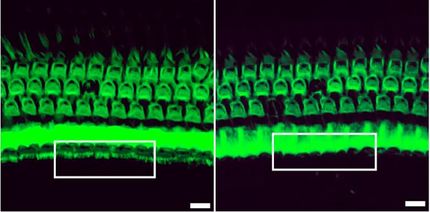EPA to Grant Merck’s Patent Application for CRISPR Technology
Related patent application recently awarded in Australia
Merck announced the European Patent Office (EPO) has issued a “Notice of Intention to Grant” for Merck’s patent application covering the company’s CRISPR technology used in a genomic integration method for eukaryotic cells.
The patent will provide Merck’s CRISPR genomic integration technology with broad protection, further strengthening the company’s patent portfolio. A related patent was approved in Australia in June 2017. Merck anticipates favourable outcomes in other countries as well, because many patent offices worldwide consider the status of related European cases to be highly relevant to the decision to grant patents.
“This is a significant and exciting decision by the EPO, and we view this announcement as recognition of Merck’s important contributions to the genome-editing field,” said Udit Batra, Member of the Merck Executive Board and CEO, Life Science. “This patent provides protection for our CRISPR technology, which will give scientists the ability to advance treatment options for the toughest medical challenges we face today.”
With Merck’s CRISPR genomic integration technology, scientists can replace a disease-associated mutation with a beneficial or functional sequence – a method important for creation of disease models and gene therapy. Scientists can also use the method to insert transgenes to enable basic research, using the technology to label endogenous proteins for visual tracking within cells, for example.
This patent application is one of Merck’s multiple CRISPR patent filings since 2012. In May 2017, Merck introduced an alternative CRISPR genome-editing method called proxy-CRISPR. Unlike other systems, the proxy-CRISPR technique allows cutting of previously unreachable cell locations, making CRISPR more efficient, flexible and specific—giving researchers more experimental options.
Merck, with its 14-year history in the genome-editing field, was the first company to offer custom biomolecules globally for genome editing (TargeTron™ RNA-guided group II introns and CompoZr™ zinc finger nucleases), driving widespread adoption by researchers. In collaboration with the Wellcome Trust Sanger Institute, Merck was also the first company to manufacture arrayed CRISPR libraries covering the entire human genome, allowing researchers to explore more questions about disease and develop cures faster. Availability of arrayed CRISPR libraries is an important advancement in genome editing and reinforces the company’s leadership position.
The company also supports development of gene- and cell-based therapeutics and manufactures viral vectors, in addition to conducting basic genome-editing research. In 2016, Merck launched an initiative to advance research in novel treatment modalities, from genome editing to gene medicine manufacturing, through a dedicated team and enhanced resources. This venture further solidifies the company’s commitment to the genome-editing field.
Most read news
Organizations
Other news from the department business & finance

Get the life science industry in your inbox
By submitting this form you agree that LUMITOS AG will send you the newsletter(s) selected above by email. Your data will not be passed on to third parties. Your data will be stored and processed in accordance with our data protection regulations. LUMITOS may contact you by email for the purpose of advertising or market and opinion surveys. You can revoke your consent at any time without giving reasons to LUMITOS AG, Ernst-Augustin-Str. 2, 12489 Berlin, Germany or by e-mail at revoke@lumitos.com with effect for the future. In addition, each email contains a link to unsubscribe from the corresponding newsletter.
Most read news
More news from our other portals
Last viewed contents

Coffee drinking is associated with increased longevity - "It is likely that the non-caffeinated compounds were responsible for the positive relationships observed between coffee drinking, cardiovascular disease and survival"
List_of_subjects_in_Gray's_Anatomy:_I._Embryology
Darwin's_finches

Tracking down satiety mechanisms in the stomach - Bitter protein fragments stimulate gastric acid secretion
Category:Gynecologists
Health_association
Canadian_Diabetes_Association
Thomas_H._Jukes
Category:Rickettsiales





















































